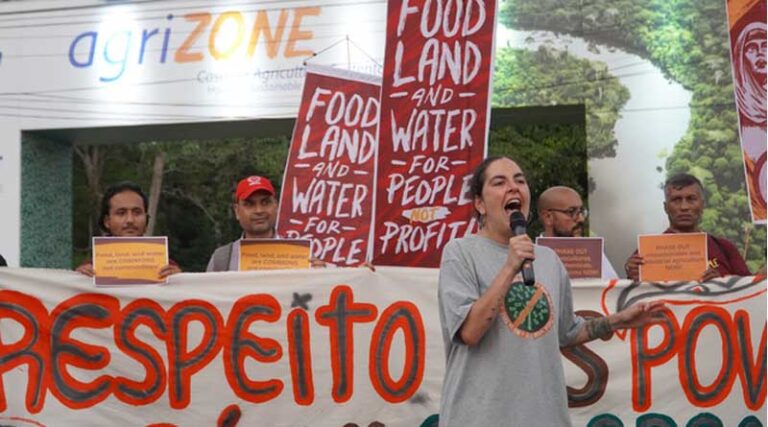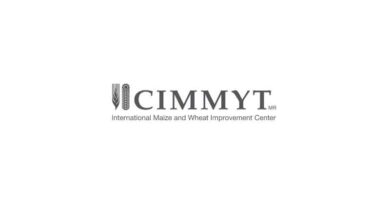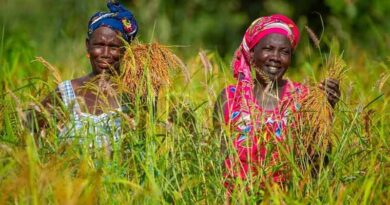
Climate activists at COP30 confront industry lobbyists at AgriZone, kicking off 1st week of negotiations
12 November 2025, Brazil: Climate campaigners at COP30 confronted Big Agriculture lobbyists in a protest at the “AgriZone”, a new zone near the COP venue dedicated to agribusiness interests and sponsored by corporate giants Nestlé and Bayer.
The AgriZone is the latest development in the growing trend of COP–the world’s only multilateral decision-making forum on climate change–being co-opted by big polluters and business interests. In recent years, the influence of industry lobbyists over the climate convention has grown, with more than 5,000 fossil fuel lobbyists given access since COP26.
Despite the COP Presidency including land restoration and sustainable agriculture in its Action Agenda, the Brazilian government made the unprecedented move to capitulate to industrial agriculture, which is a main driver of deforestation in the Amazon and produces a third of global greenhouse gas emissions. The campaigners, as part of the Global Campaign to Demand Climate Justice, condemned the move, emphasizing the danger of allowing Big Agriculture to influence world leaders and climate negotiators.
Elodie Guillon, World Animal Protection said, “It is deeply concerning to see a third zone popping up at COP30 dedicated entirely to agribusiness interests. Industrial animal agriculture is not only a leading cause of emissions, but a major driver of deforestation and farmed and wild animal suffering.
Giving agribusiness a major seat at the table at this COP will drown out the voices most affected by climate change. ‘Big ag’ are not climate champions, they are fuelled by greed as they harm animals, people and the planet.”
Prayash Adhikari, Asian Peoples’ Movement on Debt and Development and Digo Bikas Institute said, “Asian movements are here to fight back against the co-optation of COP and other multilateral processes. Asia is the biggest hunger hotspot in the world, representing 55% of the world’s hungry, and incurring trillions of dollars in climate-related losses per year. Asian peasants, fishers, and women are forced to feed the world, while they are left starving. That is why we cannot let this greenwashing from Bayer, Nestlé, JBS, and their allies in government go unchallenged. We know industrial agriculture has contributed greatly to the food and climate crises, and we cannot let Big Ag get away with it. Food, land, and water are for people, not profit! Food is a right, not mere commodities for Big Ag’s profits.”
Andrea Echeverri, Global Forest Coalition said, “The AgriZone is nothing more than a huge greenwashing space. While social organizations and other mortals usually compete to be heard in spaces in the Blue Zone and the Green Zone, agribusinesses have a huge space dedicated to dazzling negotiators and convincing them that they are not major polluters but rather the saviors of the planet.
The globalized agri-food system focused on livestock does not fulfill its purpose of feeding the world because it is designed to produce money, not food.
Inside the AgriZone, large companies, think tanks, and supposedly independent research centers are disguising their model with their “climate-smart” models, their smart seeds, their digitization, and their metrics, while they are producing a food and agricultural crisis and a countryside without peasants, and without memory and diversity.”
Sebastian Ordoñez Muñoz, War on Want said, “Industrial agriculture is fuelling both the climate and food crises, yet its biggest players are being given a stage at COP30 to greenwash their destruction. We’re here to say: food is not a commodity, it’s a right — and real climate action means taking power away from polluters and putting it in the hands of the people who feed the world.”
Joelmir Silva, riverine from Middle Earth, Xingu River said, “Our land doesn’t need promises of market, it needs respect. Our food comes from the live forest, not from fabrics that kill the People’s rivers and souls.”
Erika Xananine Calvillo Ramirez, Stop Financing Factory Farming Coalition / Mesoamerican Caravan for Climate and Life said, “Climate spaces must stop being complicit with all forms of extractivism creating the crisis. The agribusiness has been responsible for the water crisis in the Ngiwa Valley of Tehuacan region in Mexico, and they must stop greenwashing their image at COP30.”
Gertrude Kenyangi, Women and Gender Constituency /SWAGEN said, “An intersectional lens in strategies to combat Climate Change is not optional but critical for effective resilience of marginalized women. The realities of nomadic women, widows, and women with disabilities cannot be addressed through one-size-fits-all responses. Intersectional data collection and participatory methodologies that center marginalized voices are key to ensuring no one is left behind!”
Also Read: Maharashtra’s Sweet Lime Farmers Hit by 48°C Heat, Drought, and Unpaid Insurance Claims
📢 If You’re in Agriculture, Make Sure the Right People Hear Your Story.
From product launches to strategic announcements, Global Agriculture offers unmatched visibility across international agri-business markets. Connect with us at pr@global-agriculture.com to explore editorial and advertising opportunities that reach the right audience, worldwide.






